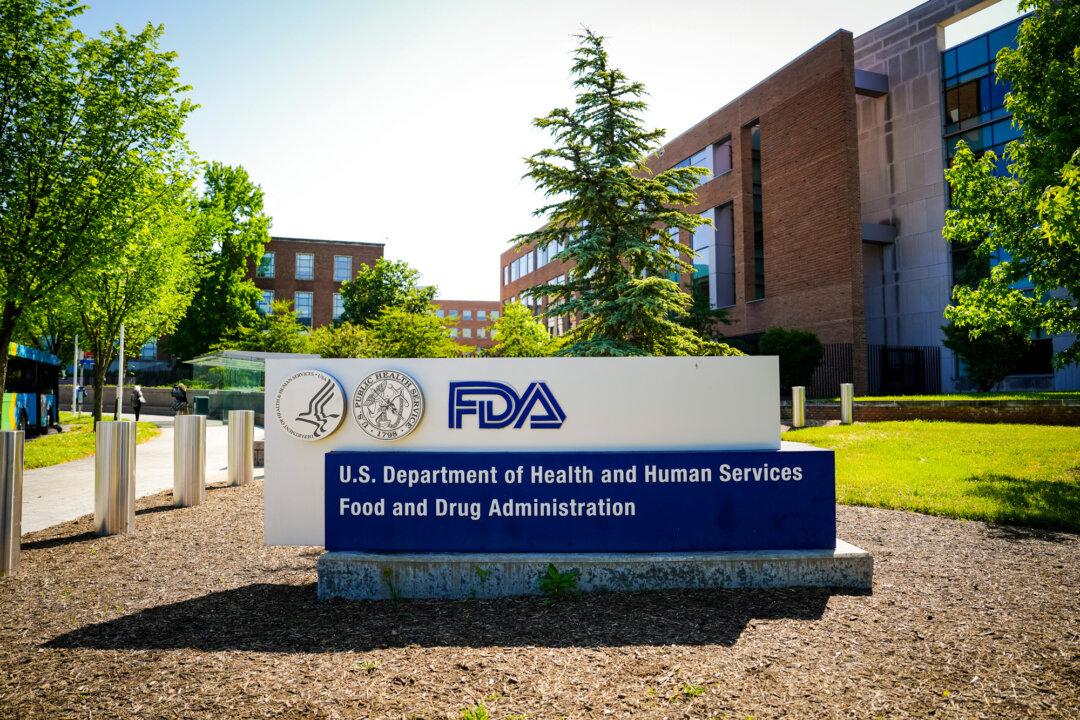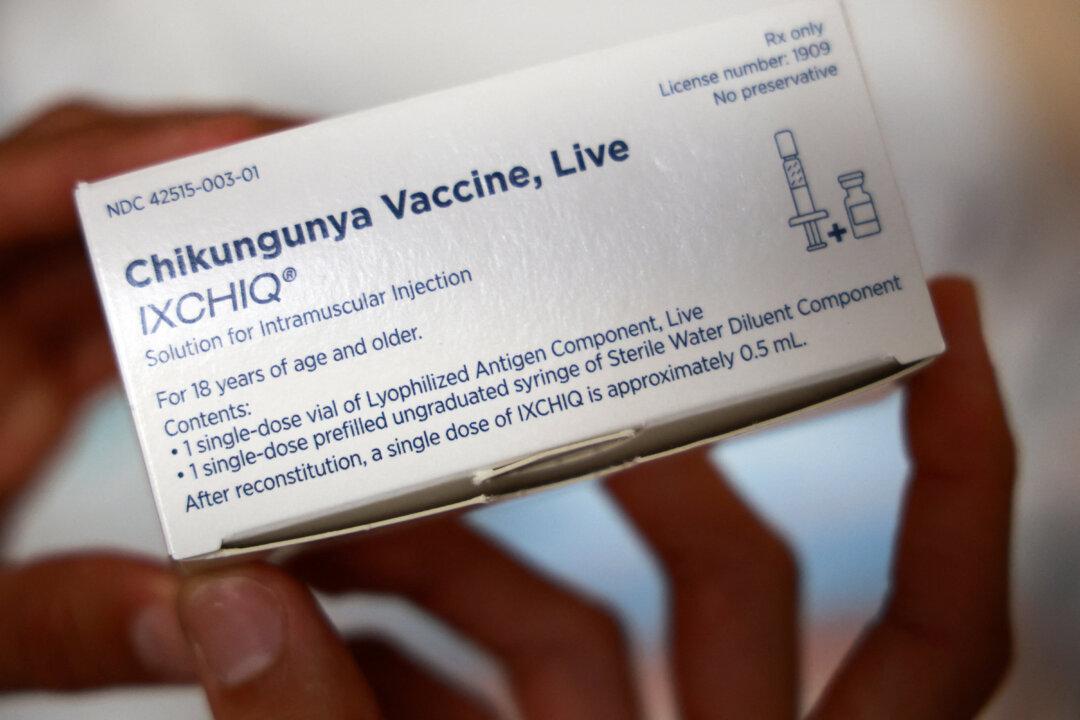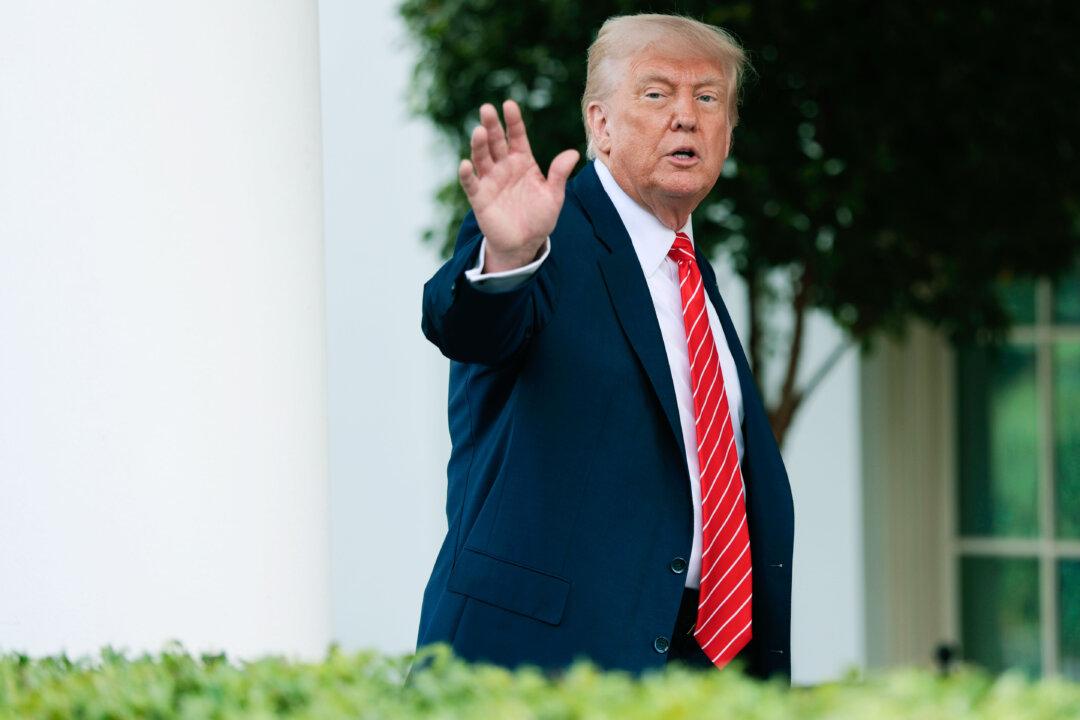The health secretary also noted the vaccine carries risks.
Health Secretary Robert F. Kennedy Jr. said in a new interview that people should get a measles vaccine.
“We encourage people to get the vaccine because it does limit the spread,” Kennedy
said during the interview with CBS, released on April 9.
Kennedy
said in March that vaccination protects people from measles and contributes to herd immunity and that people should consult with their doctors about potentially receiving a measles, mumps, rubella (MMR) shot. More recently, he
described the vaccine as “the most effective way to prevent the spread of measles.”
An outbreak of measles that started in Texas this year has
climbed to 505 cases. Other cases have been identified across the country in recent months.
Kennedy told CBS that he and President Donald Trump are aligned on a key point: that people have the choice of whether to get vaccinated and that some will choose not to.
“And we ought to know how to treat them, and doctors ought to have the best information [on] how to treat them, and we’re focusing on that,” he told CBS. He also said that many vaccines have not been properly tested and carry risks.
Adverse reactions to the MMR vaccine have
included swelling and skin issues.
Many of the patients in Texas are either vaccinated or have unknown vaccination status, according to officials there. Two Texas girls who died following measles infections were both unvaccinated.
Kennedy said Americans who have died from measles are “people who are already sick.” One of the girls had undergone tonsillectomy and then suffered from lingering mononucleosis, he said, according to her parents and health records he reviewed.
While the outbreak in the United States has expanded and led to deaths, the United States has controlled the outbreak better than Europe, where the number of cases and fatalities is much higher, the health secretary said.
“Why are we still having measles? We’re always going to have measles, as the vaccine wanes very quickly,” he said.
Various studies have identified a gradual, slow waning of the protection from the MMR vaccine, including a 2023 paper
from France and a 2023 study
from Slovakia.
The U.S. Centers for Disease Control and Prevention says that one dose of the MMR vaccine is 94 percent effective against measles, and the second dose boosts the effectiveness to 97 percent. The estimates are drawn from a 2013
paper analyzing studies that were performed more than a decade ago, a CDC spokesperson told The Epoch Times in an email.
The immunity provided by the vaccine is “long-term and probably lifelong in most persons,” the agency
states on its website.
The CDC
advises that people who are exposed to measles get the MMR vaccine within 72 hours of exposure. Another option for post-exposure prophylaxis is immunoglobulin.
Treatments
Kennedy has promoted using the steroid budesonide, the antibiotic clarithromycin, and vitamin A as treatments for measles.
Some doctors have
said that those treatments don’t work at all, or well, for measles patients.
The CDC
says that there are no specific antiviral therapies for measles and that medical care typically focuses on relieving symptoms and addressing complications, such as bacterial infections. The agency says vitamin A may be administered to measles patients, under the supervision of a doctor.
The World Health Organization
recommends that children with measles be given vitamin A, while the American Academy of Pediatrics
says that vitamin A has been linked with lower death rates and disease in measles patients in “resource-limited countries.”
Dr. Ashish Jha, who served as a health official during the Biden administration,
said on the social media platform X that vitamin A has helped children in poor countries where vitamin A deficiency is common, but it’s “not likely to do much for children in America.”
“The only way to actually protect your kids from the harms of measles is to get them vaccinated,” he said.
Before becoming health secretary, Kennedy often spoke critically of vaccines, at one point saying, “There’s no vaccine that is safe and effective.”
During his confirmation hearing, Kennedy
said that he believes vaccines “have a critical role in healthcare.”
“I support the measles vaccine. I support the polio vaccine. I will do nothing as HHS Secretary that makes it difficult or discourages people from taking vaccines,” he said.
Kennedy told CBS, “I’ve always said ... I’m not going to take people’s vaccines away from them.”
He added: “I’m going to make sure that we have good science so that people can make an informed choice and we are doing that science today so that we know the risks of that product and we also know what the benefits are, and right now, we don’t know the risks of many of these products because they’re not safety tested.”
He said he was referring to how a number of the available vaccines were cleared following clinical trials lasting as little as a handful of days. Some trials
did not include a placebo.





